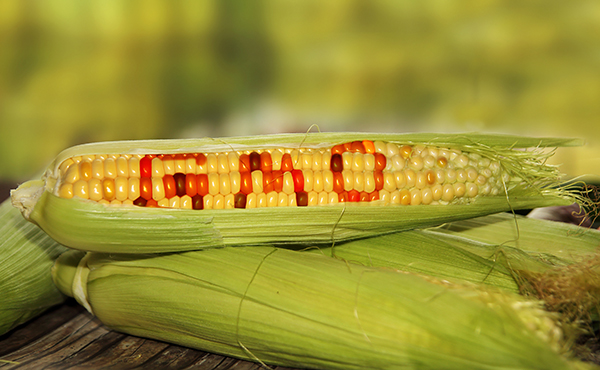
1. Almonds – Almonds, which also contain heart-healthy omega-3 fatty acids, help with your weight loss plan. They make you feel full longer. They contain 105 milligrams of magnesium in ¼ cup. One of the best ways to get your daily requirement of almonds is to make them as a topping to salads and desserts. A simple olive, caper, and feta salad is a simple and nutritious recipe to try.
2. Bananas – Bananas, which aside from having magnesium also has potassium, support healthy heart function. They can be made into a smoothie, added to a bowl of oatmeal, placed on top of a peanut-butter toast, or eaten as they are. A medium-sized banana contains 33 mg of magnesium.
3. Pumpkin seeds – Pumpkin seeds, which also contain a high amount of fiber aside from a good amount of magnesium, improve the function of the digestive system. They make a crunchy addition to salads. One ounce of pumpkin seeds is equivalent to 74 mg of magnesium.
4. Fresh raw milk – Milk, which is also rich in potassium, protein, vitamin B12 (cobalamin), and vitamin D, is chock-full of magnesium. It supports bone health. One cup of fresh raw milk has 27.8 mg of magnesium.
5. Oatmeal – Oatmeal, which has the nutrients vitamin B9 (folate), potassium, dietary fiber, and omega-3 fatty acids, can maintain cholesterol levels. One cup of cooked oatmeal contains 57.6 mg of magnesium.
6. Peas – Peas, which also give the body protein, potassium, vitamin A, and vitamin C, support eye and skin health. One cup of peas is equivalent to 48 mg of magnesium. Some people -- children in particular -- don’t like the taste of peas. This can be easily fixed by mixing the green vegetable in a broth, frittata, or curry. Parents can use this simple technique to ensure that their children are receiving their recommended intake of magnesium.
7. Sesame seeds – Sesame seeds support sexual function, due to the presence of zinc in them. One ounce of roasted sesame seeds have 101 mg of magnesium. A delicious magnesium-rich recipe to consider is mixing sesame seeds to a bowl of cooked oatmeal. You can add varied fruits to add a bit of sweetness!
8. Sunflower seeds – Sunflower seeds maintain bone strength due to its high calcium content, and maintains healthy cholesterol levels due to its polyunsaturated fat content. One-fourth cup of sunflower seeds has 128 mg of magnesium. (Related: Magnesium is Vital for Good Health.)
9. Cashews – Cashews, which have vitamin B9 (folate), vitamin K, and iron in them, help the body maintain regular blood flow. One-fourth cup of cashews will give you 89 mg of magnesium. Cashews are best eaten on their own, but can be added to various salads and desserts.
10. Organic non-GMO tofu – Tofu, being rich in iron aside from magnesium, is another food that supports heart function. A half cup of tofu is equivalent to 37 mg of magnesium. Tofu remains one of the more versatile food items and can be cooked in a variety of ways to suit every taste. A tofu dish can even feature some of the other ingredients listed here (hint: cashews and nuts taste great with the curd!)

Aside from these foods, you can get your magnesium fix with The Health Ranger's Chief Originals Magnesium Comfort 10oz (283 g) which contain 100 percent magnesium malate. They are guaranteed to be non-GMO, China- and gluten-free, and laboratory verified.
Sources include:
Please contact us for more information.























